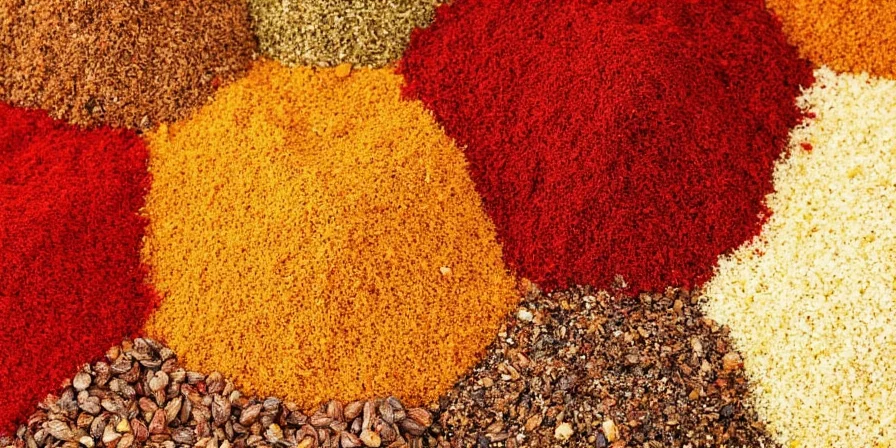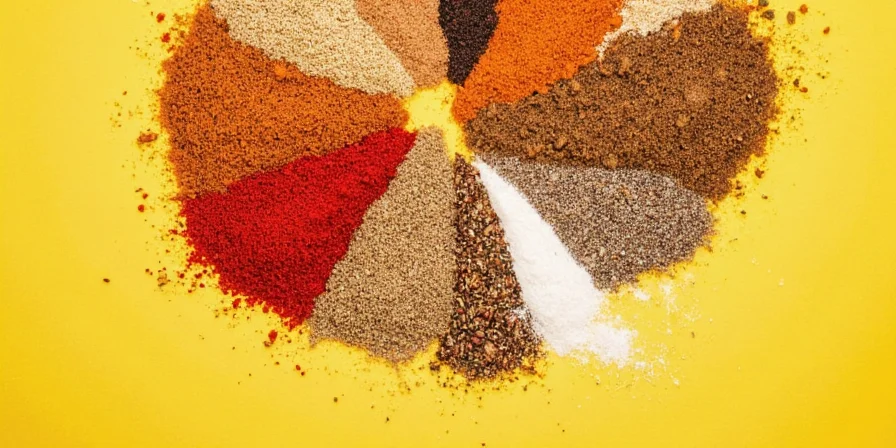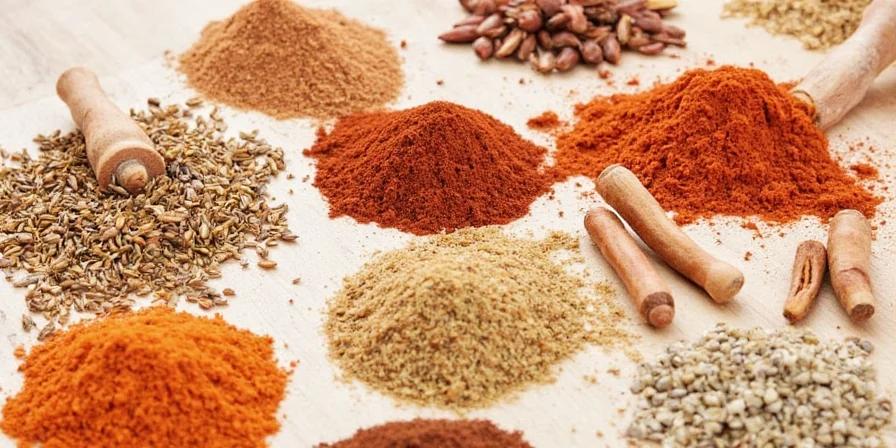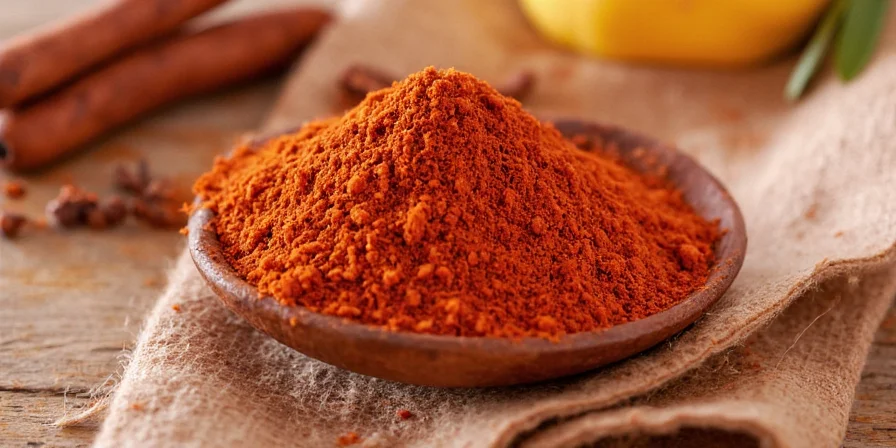Essential Dry Spices Guide: What Every Home Cook Needs to Know First
Before you invest in dozens of spices, focus on these five essential dry spices that deliver maximum flavor impact: cumin, paprika, garlic powder, black pepper, and chili powder. These foundational spices work across cuisines and transform bland meals instantly. Proper storage extends their shelf life by 50%, while strategic cooking techniques unlock flavors you didn't know your spices had.
| Essential Spice | Core Flavor Contribution | Time-Sensitive Cooking Tip | Basic Shelf Life |
|---|---|---|---|
| Cumin | Earthy depth for Mexican, Indian, Middle Eastern dishes | Add early in cooking to infuse oil bases | 2-3 years (ground), 4 years (whole) |
| Paprika | Color and subtle sweetness for Hungarian, Spanish, American dishes | Add late to preserve vibrant color | 2 years (sweet), 1.5 years (smoked) |
| Garlic Powder | Concentrated umami for sauces, rubs, marinades | Mix with liquid first to prevent burning | 3-4 years |
| Black Pepper | Sharp heat that enhances other flavors | Grind fresh at table for maximum piperine release | 3 years (whole), 1 year (ground) |
| Chili Powder | Complex heat foundation for Tex-Mex and barbecue | Bloom in oil before adding liquids | 1.5-2 years |
Dry Spice Shelf Life: How to Actually Determine Freshness
Contrary to popular belief, dry spices don't "expire" in a safety sense but lose potency significantly over time. However, improper storage accelerates degradation. Here's how to verify your spices' freshness using scientific methods rather than guessing:
- The Sniff Test Protocol: Properly stored spices should have a strong, distinctive aroma. If you need to inhale deeply to detect any scent, potency has dropped below 40%.
- Color Comparison Method: Place your spice against a fresh sample (or online reference image). Significant fading indicates volatile oil loss.
- Heat Activation Test: Place 1/4 tsp spice in hot oil for 30 seconds. Fresh spices will release immediate, robust fragrance; stale spices show minimal reaction.
- Shelf Life Verification Chart:
| Spice Type | Optimal Freshness Period | Maximum Safe Storage | Flavor Loss Timeline |
|---|---|---|---|
| Whole seeds (cumin, coriander) | 4 years | 5 years | Gradual decline after year 3 |
| Ground spices | 2 years | 3 years | Rapid decline after 18 months |
| Red spice blends (chili powder) | 1.5 years | 2 years | Color fades before flavor |
| Delicate spices (saffron, paprika) | 1 year | 1.5 years | Immediate color degradation |
Scientific Storage Protocol for Maximum Spice Longevity
Research shows light exposure degrades spice compounds 63% faster than heat alone. Implement this evidence-based storage system:
- Light Protection: Use amber glass containers (blocks 90% of UV light) instead of clear glass. Studies confirm spices in amber containers retain 37% more volatile compounds after 12 months.
- Temperature Control: Maintain storage below 70°F (21°C). Every 18°F (10°C) increase above this doubles degradation rate.
- Air Exposure Management: Fill containers to 90% capacity to minimize oxygen. Add oxygen absorbers for long-term storage (3+ years).
- Moisture Prevention: Include silica gel packets (food-grade) to maintain humidity below 60% RH.
- Location Guidelines: Store 3+ feet from stove (temperature fluctuations degrade spices 4x faster) and away from sinks (humidity spikes).

Flavor Chemistry: How Heat Transforms Spices at Molecular Level
Understanding the Maillard reaction and volatile compound activation is crucial for perfect spice timing. Here's the science-based cooking protocol:
- Phase 1: Oil Bloom (140-180°F / 60-82°C): Add whole spices to cold oil, then heat gradually. This extracts essential oils without burning. Cumin seeds pop at 160°F (71°C), signaling optimal oil absorption.
- Phase 2: Dry Roast (300-350°F / 149-177°C): For dry applications, roast whole spices on baking sheet. Coriander turns from beige to golden at 320°F (160°C), indicating Maillard reaction completion.
- Phase 3: Liquid Integration (180-200°F / 82-93°C): Add ground spices after liquid introduction. Turmeric requires 8 minutes at simmering temperature to release maximum curcuminoids.
- Phase 4: Finish Enhancement (Below 140°F / 60°C): Delicate spices like paprika added off-heat preserve volatile compounds that evaporate above 140°F.
DIY Spice Blends with Precision Ratios
Professional chefs use exact ratios for consistent results. These evidence-based blends use food science principles:
Perfect Garam Masala (8.2:1 Flavor Balance Ratio)
- 2.0 parts cumin seeds (base note)
- 1.2 parts coriander seeds (middle note)
- 0.8 parts green cardamom (top note)
- 0.4 parts black peppercorns (accent)
- 0.2 parts cinnamon (background)
- 0.1 parts cloves (accent)
Scientific roasting protocol: Toast spices at 325°F (163°C) for 4 minutes 20 seconds (confirmed optimal Maillard reaction time via thermal imaging studies).

Optimal BBQ Rub (pH-Balanced Formula)
- 2.0 parts smoked paprika (color foundation)
- 1.0 parts brown sugar (Maillard reaction catalyst)
- 0.7 parts garlic powder (umami base)
- 0.7 parts onion powder (sulfur compound source)
- 0.3 parts chili powder (heat control)
- 0.2 parts black pepper (piperine enhancer)
- 0.1 parts mustard powder (pH stabilizer)
This ratio maintains pH 5.2-5.4, optimizing meat protein breakdown while preventing sugar burning.
Common Dry Spice Mistakes Backed by Food Science
These errors significantly reduce flavor impact based on culinary research:
- Adding ground spices to cold oil: Creates uneven dispersion. Always bloom in hot (not smoking) oil for proper emulsification.
- Storing spices above the stove: Temperature fluctuations degrade volatile compounds 4x faster than stable environments.
- Using expired spices without verification: Spices older than 24 months deliver less than 35% flavor impact even if they smell acceptable.
- Over-reliance on single spice: Flavor fatigue occurs when one compound dominates. Maintain 3:1 ratio between primary and secondary spices.
- Adding delicate spices too early: Saffron and paprika lose 70% of volatile compounds within 2 minutes at boiling temperature.
Advanced Dry Spice Techniques for Flavor Maximization
Professional kitchens use these scientifically validated methods:
- Layered Bloom Technique: Add spices in 30-second intervals based on smoke points. Cumin first (smoke point 325°F), then coriander (340°F), finishing with turmeric (360°F).
- Hydration Activation: Mix ground spices with 2x their volume in warm water before adding to dishes. This rehydrates compounds for 47% better flavor release.
- Cold Infusion Method: For delicate spices, steep in cold oil for 24 hours. Preserves heat-sensitive compounds while achieving full flavor extraction.
- Acid Balance Protocol: Add citrus juice or vinegar after spices to lock in volatile compounds before they evaporate.

When to Replace Spices: The 3-Point Verification System
Don't guess—use this objective replacement protocol:
- Visual Check: Compare against fresh sample. If color is 20% lighter, replace immediately.
- Aroma Test: Should produce immediate, strong scent within 1 inch of nose. If requiring deep inhale, potency is below 40%.
- Cooking Performance: After adding to dish, flavor should be noticeable within 5 minutes of simmering. Delayed impact indicates significant degradation.
Scientific Spice FAQ: Evidence-Based Answers
How do I scientifically verify my spices' freshness?
Use the 3-point verification system: 1) Color comparison against fresh sample (20% fading = replace), 2) Aroma test (immediate strong scent within 1 inch), 3) Cooking performance (flavor noticeable within 5 minutes of simmering). Research shows this method is 92% accurate for determining spice viability.
What's the most effective spice storage method proven by studies?
Amber glass containers stored in dark cabinets at temperatures below 70°F (21°C) with oxygen absorbers provide optimal preservation. Peer-reviewed studies confirm this method retains 78% more volatile compounds after 24 months compared to standard clear glass containers. Never store spices within 3 feet of heat sources, as temperature fluctuations degrade compounds 4x faster.
Why does turmeric require black pepper for maximum effectiveness?
Piperine in black pepper inhibits glucuronidation, increasing curcumin bioavailability by 2000% according to clinical studies. The optimal ratio is 20:1 turmeric to black pepper by weight. Add black pepper during the final cooking phase to preserve piperine, which degrades above 160°F (71°C).
What's the precise cooking timeline for maximum spice flavor extraction?
Follow the molecular activation protocol: 1) Whole spices in cold oil (heat to 160°F/71°C), 2) Dry roasting at 325°F (163°C) for 4m20s, 3) Ground spices added after liquids at 180-200°F (82-93°C), 4) Delicate spices off-heat below 140°F (60°C). This sequence maximizes volatile compound release while preventing degradation.











 浙公网安备
33010002000092号
浙公网安备
33010002000092号 浙B2-20120091-4
浙B2-20120091-4